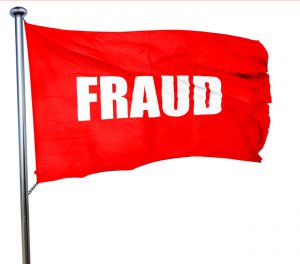The recap of our recent “Financial Self-Defense” seminar concludes with a general overview of the red flags to be wary of when dealing with a financial advisor. You always have the right to pursue a second opinion and to take the time to think things over.
Top Ten Red Flags of Financial Fraud
#1. “We’ve known him forever. I’m sure you can trust him.”
This is the “friends and family” prospects model. Your friend’s nephew is just starting out at a financial firm. Do you mind if he meets with you? It’s not impolite to decline such a meeting or, if you agree, do your homework. Make sure this person is someone you truly would trust with your finances.
#2. “Just sign here. I’ll take care of the rest.”
Never leave blanks on your signed financial paperwork. It might be tempting but be present for the completion of your paperwork.
#3. “This is just for my special clients.”
Beware any offer labeled as “private” or “exclusive.” It rarely is. Ask whether your investments are regulated or supervised by independent third parties.
#4. “I’ll send you all of the investment reports.”
Make sure you receive reports from your advisor and the independent third party custodian of your accounts. Those reports should match.
#5. “Make the check payable to me.”
Your check should be made payable to the custodial entity. Never give a financial professional a blank check, no matter how trusted your relationship.
#6. “I know it’s a difficult time, but you need to decide now.”
Take your time. If you’ve inherited some money, it’s recommended to take up to one year to decide how to manage these funds. Feel free to bring a trusted friend along to your appointment. Trust, but verify.
#7. “This one’s a no-brainer. You can’t lose.”
There’s prudence in financial management, but nothing is certain. Take your time. Get a second opinion. It’s your money.
#8. “This offer is only good today.”
Pressure selling is a common practice in the brokerage world. If anyone tries to force you into a decision using this tactic, steer clear.
#9. “I can replace that with something better.”
Understand how a financial professional earns their pay. Before agreeing to any transaction, carefully consider the charges you’ll incur and the timing involved.
#10. “It’s very complicated. No need to bother you with all the details.”
Don’t buy what you can’t understand. Make sure the advisor explains everything about your investments.
In addition to avoiding all of these red flags, it’s a good idea to designate a trusted friend or relative to handle your investments should something happen to you.
If you have questions about your investments or would like a second opinion, we’re happy to help. Contact us online or call 215-723-4881.
Miss the first two Financial Self-Defense: Financial Fraud Recaps? Read them now:
Financial Self-Defense: Avoiding IRS Scams
Financial Self-Defense for Senior Citizens

